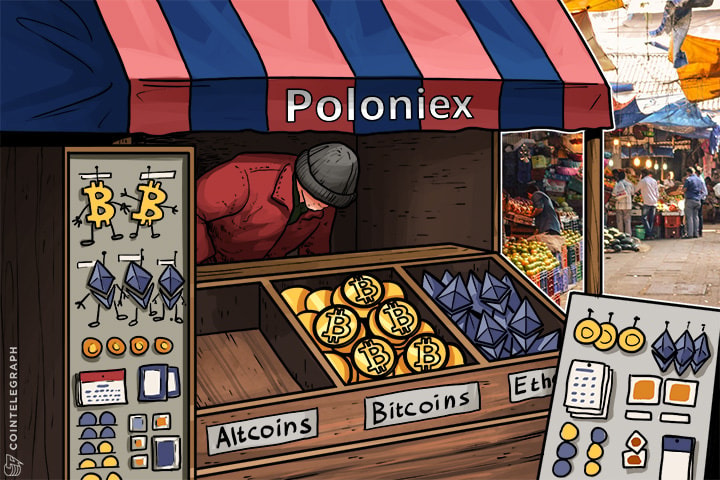Cryptocurrency exchange Poloniex has announced it is delisting a record 17 altcoins effective May 2. This development saw the value of most of these altcoins dip significantly.
Both users and developers have sought an explanation from Poloniex, which has so far not been forthcoming. The exchange, in fact, is not under any obligation to do so, notes co-founder of SatoshiLabs, Alena Vranova.
Small revenue
According to Vranova, the decision taken by Poloniex was completely legitimate.
She explains:
“Maintaining each coin comes with some overhead and I'd assume in the case of Poloniex the revenues from those altcoins trading were not sufficient to cover the expenses.”
However, she notes that it is very important for Poloniex now that their users will be given enough notice and time to withdraw their altcoins to their wallets.
Vranova also notes that the problem of most altcoins is that their developers do not maintain the infrastructure needed to actually use their coin.
Possible court case
Dana Coe of BitLox is asking whether the holders of these coins on Poloniex can transfer their coins to another platform.
In Coe’s opinion, if holders are able to withdraw the coins to anywhere else, then what Poloniex has done is unfortunate for the coins being delisted. However, he describes it as a hazard one takes when using such a service.
On the other hand, Coe notes that if the coins cannot be withdrawn, then the action by Poloniex certainly makes for a possible civil liability case.
The final possibility, Coe notes, is if the coins in question do not have a desktop or other type of client where the coins can be transferred to, it would imply that the developers may not have been dedicated to their coin.
Manipulation unlikely
Coe doesn’t agree with the view that Poloniex may have manipulated these coins before delisting. He says:
“The allegations of Poloniex artificially “pumping” these coins prior to delisting them should be taken with a grain of salt, as many of these coins are of such a market cap or trading volume that just a few dedicated actors (not necessarily the exchange itself) can cause tremendous swings in value. It would appear that (to Poloniex at least) such swings are not a desirable trait for coins they want to list.”
Coe also notes that some transparency would go a long way in defusing allegations being made by the community regarding Poloniex’s behavior. Such transparency, according to him, will naturally provide answers to questions such as: If Poloniex is acting as a truly neutral party by being an exchange, why would such volatility be an issue at all? Why would they care? Is there some esoteric liability law that pertains to allowing such volatility to take place on their exchange?
“All in all, I understand that the criteria for delisting may be fluid according to the situation at hand,” concludes Coe.


